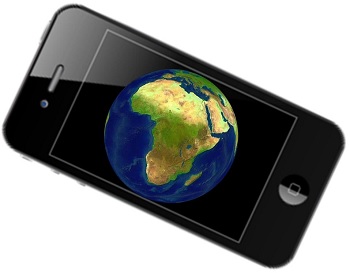Hack against LoopPay conducted by Chinese group
LoopPay has been targeted by hackers, which has caused concern among consumers using Samsung Pay. LoopPay was acquired by Samsung earlier this year, and this company’s technology is central to Samsung Pay. The hack was noted as being a sophisticated attack by a supposedly government-affiliated group in China. The actual attack occurred back in march of this year, but several events associated with the attack have been identified by LoopPay and Samsung since then.
Digital attacks continue to grow in frequency in the mobile commerce space
Digital attacks are becoming more common in the mobile commerce space, where a great deal of money is now flowing. Because many organizations involved in this space have very limited experience when it comes to mobile payments and the technology needed to secure them, they have become prime targets for malicious groups that seek to exploit the financial information of consumers. Over the years, large organizations have reported cyber attacks on their mobile payments systems, which has lead to the information of millions of consumers being compromised.
Samsung notes that the attack will not affect Samsung Pay users
 While the attack is considered significant, Samsung suggests that it is nothing more than an isolated incident. As such, the information associated with Samsung Pay itself, such as the financial details of consumers, has not been compromised. The company claims that those using Samsung Pay will not have to worry about their information being exploited, but consumers may want to take steps to ensure that their information is secure nonetheless.
While the attack is considered significant, Samsung suggests that it is nothing more than an isolated incident. As such, the information associated with Samsung Pay itself, such as the financial details of consumers, has not been compromised. The company claims that those using Samsung Pay will not have to worry about their information being exploited, but consumers may want to take steps to ensure that their information is secure nonetheless.
Security continues to be a major issue for the mobile commerce space
Security, or lack thereof, has been a major problem that has plagued the mobile commerce space for years. Several companies have become involved in this sector, but they have not been able to keep up with the digital risks that exist therein. Without adequate security, consumers have begun to lose faith in mobile commerce as a whole, which has driven them to remain firmly within the realm of traditional commerce and e-commerce, where they are more comfortable.
A new report from the GSMA has shown that smartphone shopping and transactions are on the rise.
The most recent GSMA: Mobile 360 Series report, which focused on the Africa conference, showed that digital and m-commerce are rapidly rising in Africa and that this is being greatly driven by a boost in internet penetration throughout the continent.
The report’s findings were based on consumer research data that was collected in March 2015 by Ipsos.
What the report showed was that 20 percent of internet users in South Africa have made a purchase online either over computers or m-commerce. It also revealed that an additional 48 percent said that they expected to shop online in the future. It also said that mobile shopping will become a key component in the growth of the overall digital commerce market within Sub-Saharan Africa, since most internet users within that part of the world will be accessing the internet by way of smartphones and other mobile devices.
These findings and conclusions align well with those made by other m-commerce focused reports.
 A survey released by In Mobi in 2014 was already showing that 83 percent of consumers said that they intended to shop online over a smartphone or tablet in the following year. This was an increase of 15 percent over that firm’s figures from 2013 and it involved the participation of 14,000 people across 14 different countries.
A survey released by In Mobi in 2014 was already showing that 83 percent of consumers said that they intended to shop online over a smartphone or tablet in the following year. This was an increase of 15 percent over that firm’s figures from 2013 and it involved the participation of 14,000 people across 14 different countries.
This is only being helped by the fact that there are now several established online shopping sites within the Sub-Saharan African region and many of them are offering transactions that can be conducted cross-border. Jumia stands out among them. It has been around since 2012, at which time it was launched through the funding provided by Rocket Internet. That company has been greatly successful and has undergone a considerable expansion throughout that part of the continent, starting in Nigeria, but moving outward to a number of other countries such as Uganda, Kenya, Tanzania, Ghana, Cameroon and Senegal.
A central component of Jumia’s strategy is m-commerce. It has already entered in to partnerships with Millicom and MTN to push growth into the future through increases in traffic from mobile users by way of promotions, cross-selling, joint advertising campaigns and payment facilitation.
 While the attack is considered significant, Samsung suggests that it is nothing more than an isolated incident. As such, the information associated with Samsung Pay itself, such as the financial details of consumers, has not been compromised. The company claims that those using Samsung Pay will not have to worry about their information being exploited, but consumers may want to take steps to ensure that their information is secure nonetheless.
While the attack is considered significant, Samsung suggests that it is nothing more than an isolated incident. As such, the information associated with Samsung Pay itself, such as the financial details of consumers, has not been compromised. The company claims that those using Samsung Pay will not have to worry about their information being exploited, but consumers may want to take steps to ensure that their information is secure nonetheless.
 A survey released by In Mobi in 2014 was already showing that 83 percent of consumers said that they intended to shop online over a
A survey released by In Mobi in 2014 was already showing that 83 percent of consumers said that they intended to shop online over a 